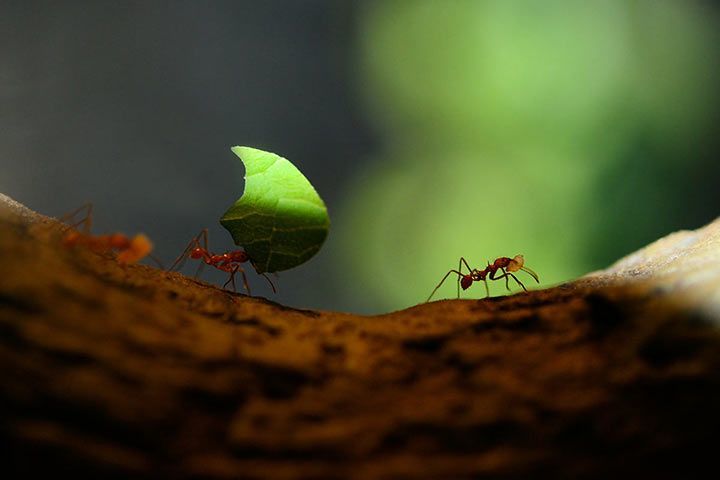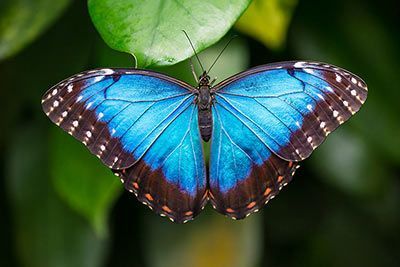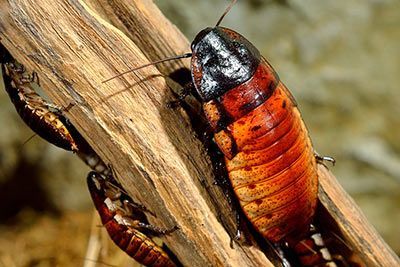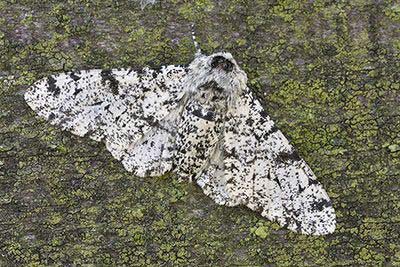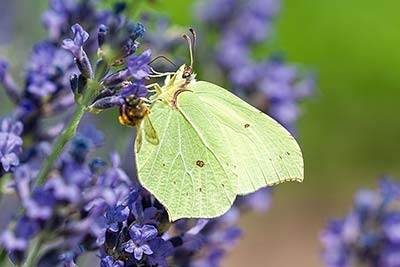Leafcutter Ant
Leafcutter Ant Facts
| Size | Up to 0.6 in (16 mm) |
| Speed | Unknown |
| Weight | Unknown |
| Lifespan | Unknown |
| Food | Fungus |
| Predators | Anteater, armadillo, scuttle fly |
| Habitat | South and Central America, the Tropics, the Sub-Tropics |
| Order | Hymenoptera |
| Family | Ants |
| Scientific name | Atta and Acromyrmex |
| Characteristics | Turns leaves into fungus |
Main Characteristics
The leafcutter ant isn't a distinct species. It is a non-generic name for 47 ant species that have one thing in common: leafcutter ants use their mouthparts to cut pieces out of leaves and carry them home piggyback.
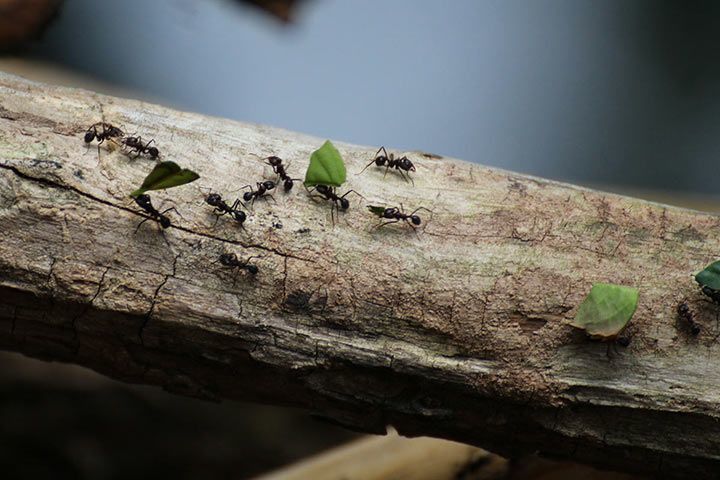
Behavior
What Do Leafcutter Ants Eat?
Leafcutter ants use their mouthparts to cut out pieces of leaf and take these back home on their backs. But they don’t eat them. Leaves? Boring! Instead, they chew their greens to make a paste. From this, their favorite fungus starts to grow - and the ants are very careful to make sure that the fungus thrives. They keep on feeding it with new plant paste, regularly remove other fungus spores, and expand their “fungus farm” by planting individual mushrooms in new places like cuttings.
Leafcutter Ants Need a Lot of Leaves
A colony of two million leafcutter ants will work their way through several dozen tons of foliage every year.
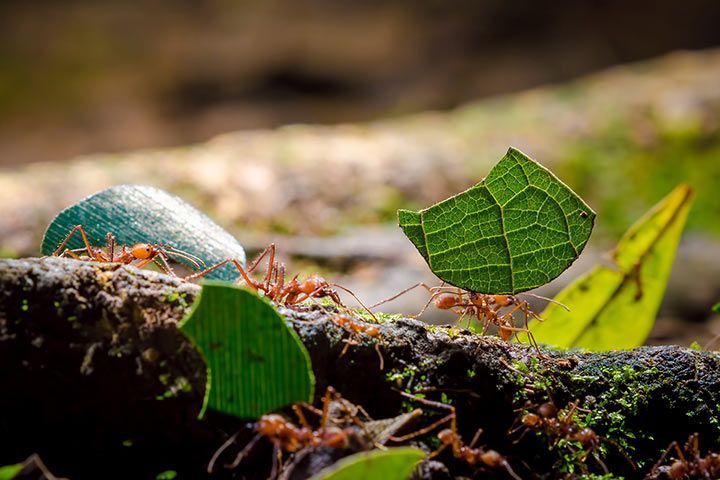
Enemies and Threats
How Do Leafcutter Ants Defend Themselves?
An ant with a leaf over its head? This is the hostile scuttle fly’s favorite sight - right now, the ant is defenseless. That’s why “bodyguards” are often seen riding on the leaves. They spray acid at the scuttle flies to chase them off.
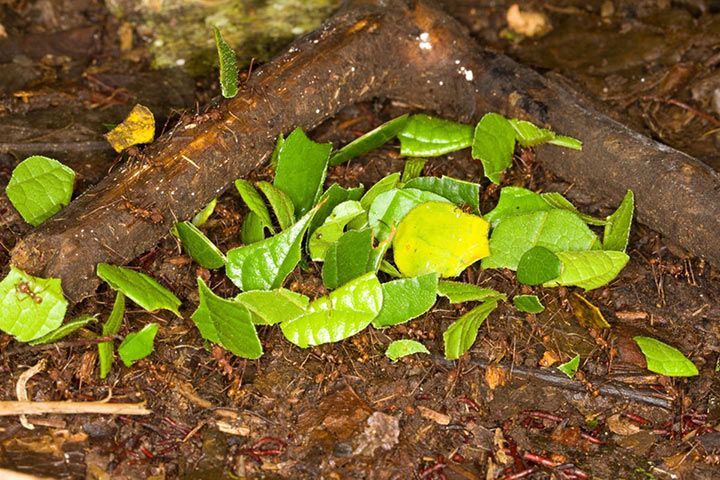
- Find Out More:
- Argentine Ant Facts
- Army Ant Facts
- Weaver Ant Facts
- Watch Now on animalfunfacts.net:
 The Strongest Animals in the World
The Strongest Animals in the World
